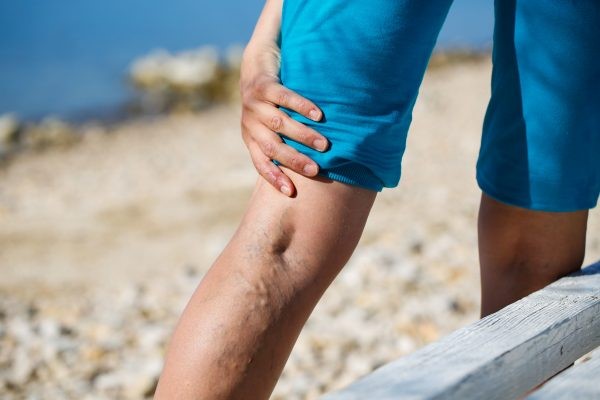
What Type of Doctor Treats Varicose Veins?
Varicose veins are more than just a cosmetic concern; they can cause significant discomfort and even lead to serious health issues if left untreated. Understanding which medical professionals can address this condition is crucial for effective treatment and management. In this article, we will explore the different types of what type of doctor treats varicose veins who treat varicose veins, their roles, and how to choose the right specialist for your needs.
What Are Varicose Veins?
Varicose veins are swollen, twisted veins that are visible just under the skin’s surface. They typically occur in the legs and feet due to weakened vein walls and valves that fail to keep blood flowing properly. This leads to blood pooling in the veins, causing them to become enlarged and twisted. Symptoms can range from mild, such as aching or heaviness in the legs, to severe, including ulcers and bleeding.
Types of Doctors Who Treat Varicose Veins
Several types of doctors specialize in the diagnosis and treatment of varicose veins. Each specialist brings a unique set of skills and approaches to managing this condition.
1. Vascular Surgeons
Role and Expertise: Vascular surgeons are medical doctors who specialize in the surgical treatment of blood vessel conditions, including varicose veins. They are trained to perform various procedures, from minimally invasive techniques to more traditional surgeries. Vascular surgeons can address complex cases that may require more extensive intervention.
Treatment Options:
- Endovenous Laser Therapy (EVLT): Uses laser energy to close off varicose veins.
- Radiofrequency Ablation (RFA): Employs radiofrequency energy to heat and close the affected veins.
- Sclerotherapy: Involves injecting a solution into the vein, causing it to collapse and fade.
- Vein Stripping: A surgical procedure to remove the affected veins.
When to See a Vascular Surgeon: If you have severe varicose veins, significant symptoms, or previous treatments haven’t been effective, consulting a vascular surgeon may be necessary.
2. Phlebologists
Role and Expertise: Phlebologists are specialists focusing exclusively on vein diseases, including varicose veins. They have expertise in diagnosing and treating various venous conditions and often use a range of non-surgical techniques.
Treatment Options:
- Sclerotherapy: As mentioned earlier, this is a common treatment used by phlebologists.
- Ultrasound-Guided Foam Sclerotherapy: An advanced form of sclerotherapy using ultrasound guidance for more precise treatment.
When to See a Phlebologist: Phlebologists are an excellent choice for patients with less severe varicose veins or those looking for non-surgical treatment options.
3. Dermatologists
Role and Expertise: Dermatologists, while primarily focusing on skin conditions, also treat varicose veins, particularly those that are more superficial and cause cosmetic concerns. They are skilled in various cosmetic procedures that can help reduce the appearance of varicose veins.
Treatment Options:
- Laser Treatments: Non-invasive procedures to reduce the appearance of veins.
- Sclerotherapy: Dermatologists can also perform sclerotherapy to treat smaller veins.
When to See a Dermatologist: If your varicose veins are primarily a cosmetic concern or you need treatment for small spider veins, a dermatologist might be the right choice.
4. Interventional Radiologists
Role and Expertise: Interventional radiologists use imaging techniques to guide minimally invasive procedures for treating varicose veins. Their approach is often less invasive compared to traditional surgery.
Treatment Options:
- Endovenous Laser Therapy (EVLT): Similar to the technique used by vascular surgeons but guided by imaging.
- Radiofrequency Ablation (RFA): Performed with imaging guidance to target and treat affected veins.
When to See an Interventional Radiologist: If you prefer minimally invasive treatment options and your varicose veins are suitable for such procedures, an interventional radiologist might be the best fit.
How to Choose the Right Specialist
Choosing the right doctor for your varicose vein treatment involves considering several factors:
1. Severity of Your Condition
Assess the severity of your varicose veins. For severe cases or those that may require surgery, a vascular surgeon is often the best choice. For milder symptoms or cosmetic concerns, a phlebologist or dermatologist may suffice.
2. Treatment Options
Consider the types of treatments available and which ones align with your preferences. Some specialists may offer a broader range of non-surgical options, while others may focus on surgical interventions.
3. Experience and Qualifications
Check the qualifications and experience of the specialist. Look for board certifications, experience in treating varicose veins, and patient reviews.
4. Consultation and Assessment
Schedule consultations with potential specialists to discuss your condition and treatment options. This will help you gauge their approach and determine if it aligns with your needs.
Conclusion
Understanding which type of doctor treats varicose veins can help you make an informed decision about your treatment. Whether you choose a vascular surgeon, phlebologist, dermatologist, or interventional radiologist, each specialist offers unique skills and treatment options to address varicose veins effectively. By considering the severity of your condition, the treatment options available, and the qualifications of the specialist, you can find the right professional to help manage your varicose veins and improve your quality of life.
Leave Your Comment